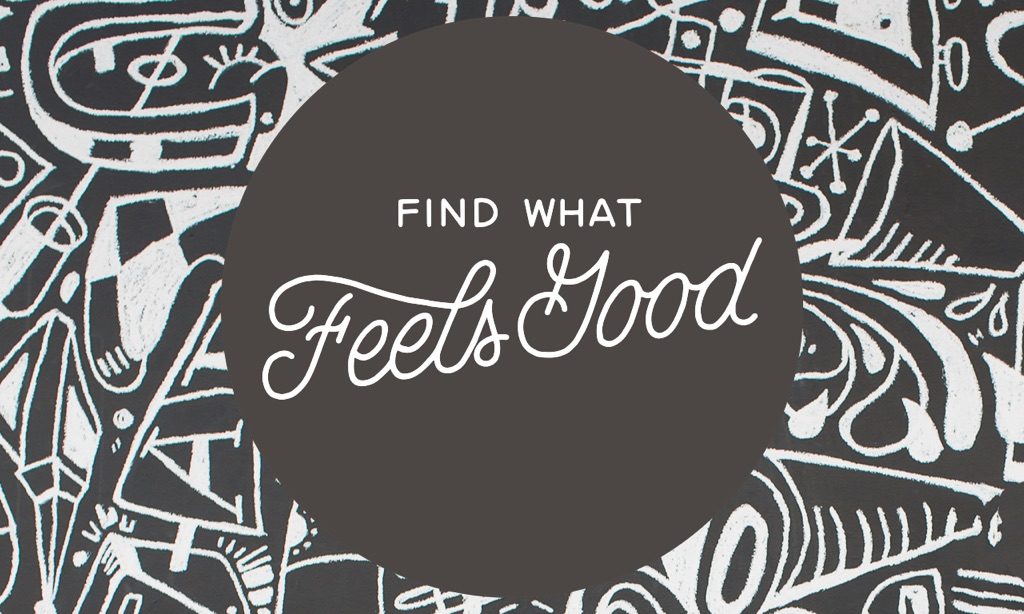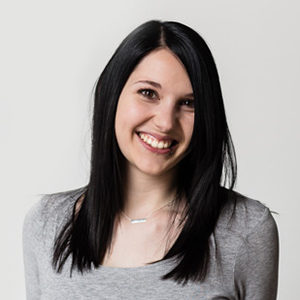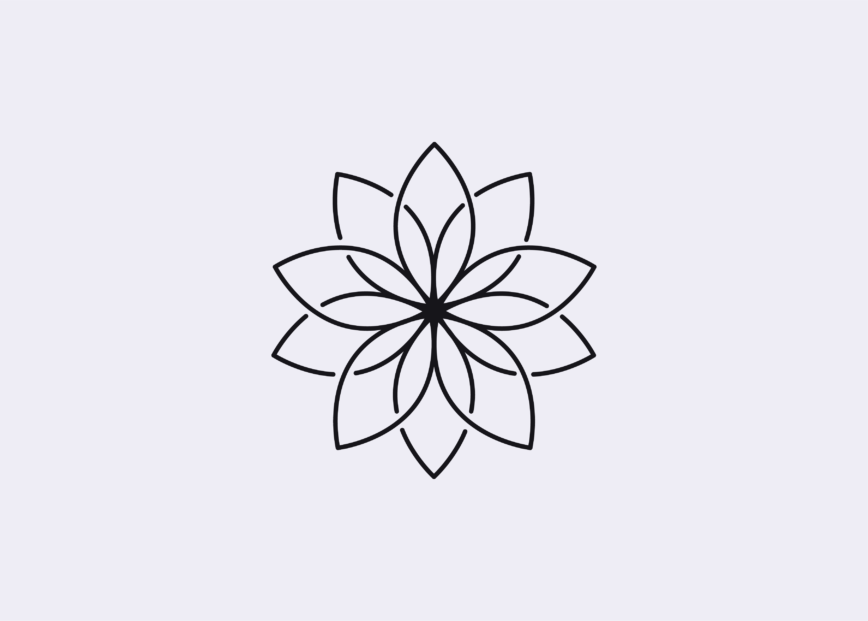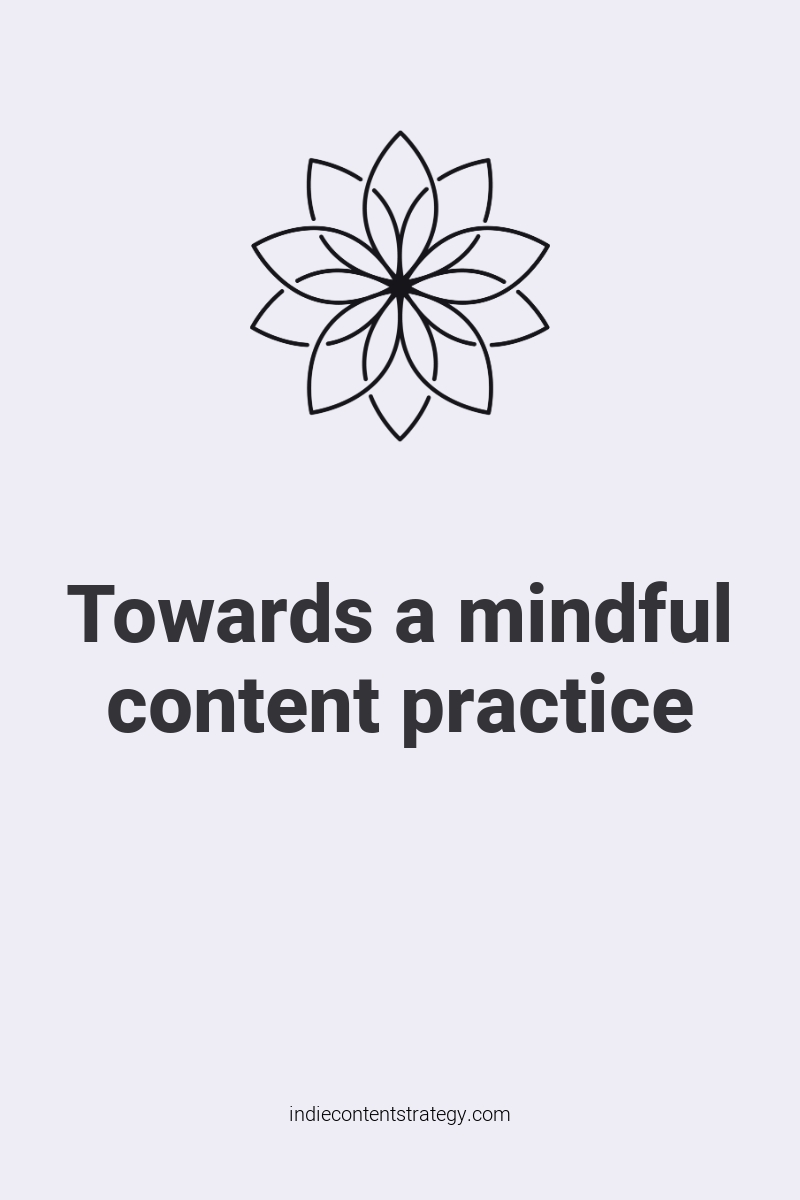Mindfulness can be applied to many situations in your private and business life. Working on content is no exception. Being mindful can make us more productive and intentional, instead of mindlessly producing content like a mad(wo)man. (I sure am guilty of that.)
In this article, I’m going to share some useful pieces of advice around mindfulness that helped me advance my content practice.
About Mindfulness
Mindfulness has long shed its image of spirituality. Today, we know from scientific studies that mindfulness is capable of literally changing your brain structure to decrease stress and anxiety, be more creative and improve our focus.
Mindfulness is awareness that arises through paying attention, on purpose, in the present moment, non-judgmentally.
Jon Kabat-Zinn
Mindfulness can be trained like a muscle that will help to be more aware of where we are and what we’re doing in our daily lives.
To train that muscle, we can meditate or dabble in yoga. They both are connected to buddhism, but faith is certainly not required to practice them. Buddhism is often called advanced common sense, because its advice and principles are often obvious truths about life that people tend to forget about. I love this way of putting it!
Mindfulness lessons for your content work
Explore where you are today
Meditation 101 tells us to not get frustrated with ourselves when our thoughts start to wander while meditating. That’s kind of what the practice is about: Coming back to focus when our monkey mind is starting to go nuts and we get distracted.
It’s also about accepting that not all days are the same: Some days it will be easier, some days it will be harder.
Lesson 1: Iterate, don’t judge
Even when it’s a hard day, we just try to observe where we are without labeling it as bad. It’s about acceptance of how things are at the moment and emotionally detaching yourself from the outcome of your practice.
This understanding has been so helpful in my work with content. It helped me to accept the results of my work and keep on going: I get less frustrated when an article series does not perform well. I can acknowledge a traffic dip without freaking out (most of the time). And I don’t get disheartened when I realize a user’s problem of finding things within my newly created structure.
It does not mean to not have goals for your work or to be indifferent if you don’t reach them. It’s just a way of not being too attached to the current state, and keep moving faster without getting caught up in your feelings.
This mindset helped me truly embrace the iterative nature of content work.
Lesson 2: Be aware of your status quo
In a less squishy, emotional way explore where you are today can also mean to have an overview of the current state of your content at all times. How much do you have, who is responsible, where is it published, is it any good? Observe.
We often wait until the next relaunch or strategy overhaul to examine our content that way. Being mindful about it also means to not lose track of where you are and developing a system to analyze it consistently.
This may also help you realize what content you don’t need to create, and what older content you should tend to. (Related: Read more about why content lives in a lifecycle.)
Find what feels good
The mantra of yoga teacher Adriene Mishler and her YouTube yoga channel Yoga with Adriene is Find what feels good.

Adriene always emphasizes yoga is not about taking instructions on how your practice should look like. It’s about to mindfully fathom what your body is capable of and which movements feel good to you.
Lesson 3: Give yourself permission to experiment
As professionals, we’re always on the lookout for the right way of doing things. That’s why we read and listen to what other clever people from our industries have to say, after all.
Only now do I understand, that I subconsciously pressure(d) myself into doing things as right as possible, all the time. Whenever I had to change my course after my original hypotheses didn’t work out, I would feel like I failed. On the other side: When things went well, I often accepted them as good enough and didn’t optimize further (building bad content habits).
If you think about what’s the job of a pilot, you’ll realize that they constantly correct their course to get to their goal destination. That’s what I think we should be doing with content, and aren’t doing enough right now: Constant course correction.
There is no way to produce the best possible content work without experimenting. There are so many variables to content – people, timing, platforms… While we should stay true to our defined content vision, how we get there and what measures we use should always be up for negotiation.
Content is poker, not chess
Colleen Jones in The Content Advantage
This comparison stuck with me. In chess, we have all the information available: There’s a finite amount of moves you can make on the board. In poker, you only know your hand. You’re constantly placing bets based on partial data. In content work, you never have all the data as well, and your content decisions are the same kind of bets.
To find your own way to success, keep exploring and feel out how design workflows, writing style, types of content, automation and other factors can help you create the best version of your content. Your experiments, experience and decisions will add up over time.
Using mindful ways of thinking about content helps us be more analytical, and aware of what the hell it is that we’re doing every day with our content.
With our research done, strategy set up and our content calendars planned out, we often focus on creating, creating, creating. But it’s always a good idea to take a step back to observe where we stand right now, find what feels good – and maybe correct our course.
Resources & reading suggestions
- I could recommend a thousand books on mindfulness, but this has been my starting point, and it’s awesome for skeptics and people who don’t like to label themselves as spiritual: 10% Happier: How I Tamed the Voice in My Head, Reduced Stress Without Losing My Edge, and Found a Self-Help That Actually Works by Dan Harris
- Yoga with Adriene
- Headspace mindfulness app & blog
- The Content Advantage: The Science of Succeeding at Digital Business Through Effective Content by Colleen Jones



